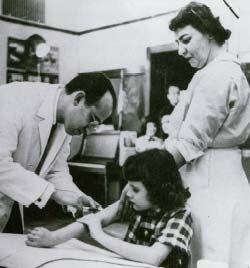Penelope Trunk is one of my favorite career writers. She recently wrote a post about Gen X and Y finding fulfillment before retiring to the lake cabin. From Penelope:
Maybe the reason we’re so bad at saving for retirement is that retirement seems so ridiculous today. The workplace no longer demands that we put off our hopes and dreams until we’ve worked 40 years. And Baby Boomers aren’t exactly retiring in droves either, which makes younger people think that maybe they won’t want to retire either.
This demographic shift in thinking about careers leads to a new way to think about retirement and dream jobs and team work. Young people think their parents—Baby Boomers—missed out on this phase. Baby Boomers worked longer hours than any other generation and there’s a nagging feeling that it wasn’t all that necessary - that we can have engaging, rewarding careers without spending such a large percentage of our life at the office.
In fact, today there’s an intense peer pressure among young people to find the fulfilling dream job right away. This younger generation watched their parents put off their dreams until they paid their dues only to find themselves laid off mid-career, or underfunded for retirement late in their career. So Generation Y is not waiting. Read the rest here.

